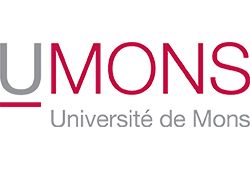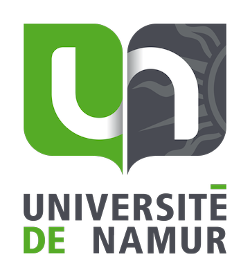|
Congrès 2021 de la Société de Philosophie des Sciences Le VIIIe congrès de la Société de Philosophie des Sciences se tiendra à l’Université de Mons (Belgique) du 8 au 10 septembre 2021.
Le thème du congrès 2021 sera : Sciences et scientificité. Cependant, toute proposition de contribution relevant de la philosophie des sciences sera examinée.
Argumentaire Science et pseudoscience La distinction entre science et pseudoscience a toujours été une question centrale en philosophie des sciences. La recherche de critères qui permettraient de formuler cette distinction a d’ailleurs souvent permis des avancées importantes dans le domaine de l’épistémologie. Pour bien cerner la frontière entre science et pseudoscience, il est nécessaire d’identifier sur quels critères elle se construit. Si les notions de méthode ou de vérité/fausseté ne sont pas étrangères à la pseudoscience, elles ne sont pas suffisantes pour la différencier ou la délimiter. Et on ne peut pas non plus ramener la question de la distinction à la thématique de la manipulation et des intentions, car la plupart des fondateurs et adeptes des pseudosciences le sont de toute bonne foi. La question n’est déjà pas simple en ce qui concerne la science établie et reconnue, mais se corse particulièrement pour ce qui est de la nouvelle science qui n’a pas encore acquis droit de cité et qui se distingue pourtant aussi des pseudosciences dans la mesure où elle donnera lieu, mais dans le futur, à de la science. Or, c’est souvent en s’appuyant sur le futur et sur le fait que des théories révolutionnaires n’ont pas souvent été immédiatement admises dans le passé (ce qu’on appelle parfois le syndrome de Galilée) que les pseudosciences revendiquent le statut de sciences à part entière. La philosophie des sciences a donc deux raisons majeures de s’intéresser à cette problématique. Du côté pratique, cette approche critique permet de construire des outils afin de désamorcer ces théories pseudoscientifiques, outils dont l’efficacité est d’ailleurs matière à débats. Du côté théorique, ces sujets sont en quelque sorte des cas d’études qui mettent en évidence les avantages et les inconvénients des différentes approches épistémologiques. La question des pseudosciences est donc d’un grand intérêt en philosophie des sciences. En tant qu’objet d’analyse, elle permet notamment de questionner la méthodologie scientifique, d’éclaircir le rapport à la vérité des théories, d’interroger le statut de preuve ou d’analyser la formation et la remise en question du consensus dans la communauté scientifique. Cette thématique n’est pas nouvelle, mais elle revêt une actualité particulière à l’heure des réseaux sociaux omniprésents et de l’accès généralisé à un immense réservoir d’informations, dans la mesure où les théories pseudoscientifiques y trouvent un terrain particulièrement fécond pour se développer. On pensera bien sûr à la crise sanitaire actuelle, qui voit le renforcement d’un complotisme hostile à l’institution scientifique présente et prétendant supplanter la science dans la recherche de la vérité, ainsi qu’une remise en question du processus expérimental (en particulier des tests contre placebo), accusé d’une lenteur inadaptée aux situations d’urgence. Les tentatives d’instrumentalisation politiques ou médiatiques de la science se multiplient également et mettent en exergue la question de savoir qui, de l’expert ou du consensus, fonde réellement les affirmations scientifiques. Ainsi, la question des critères de scientificité, qui suscite déjà le débat parmi les spécialistes concernés, nécessite aujourd’hui d’être portée dans l’espace public. Science ouverte, accessible, participative La généralisation de l’accès à internet et plus généralement aux outils informatiques a aussi profondément changé la manière dont la science se fait et est perçue. Les modes de publication d’articles scientifiques ont drastiquement changé, les revues, désormais présentes en ligne, ont gagné en visibilité et en accessibilité et l’on voit émerger une véritable culture de l’open source qui tend à renforcer la cohésion d’une communauté scientifique mondiale. Un exemple de changement important apporté par ces technologies à la méthodologie scientifique est la publication de résultats négatifs. Ce type d’articles était il y a peu très marginal, les chercheurs souhaitant rarement entamer un long processus d’écriture aboutissant souvent à un refus de publication pour annoncer qu’ils n’avaient pas obtenu les résultats escomptés. Aujourd’hui, la diversité des possibilités de publications a permis l’apparition de journaux spécialisés en résultats négatifs (comme la revue Negative Results), ce qui permet la remise à l’honneur de l’un des critères de scientificité généralement considéré comme central dans la définition de la science, en l’occurrence la réfutabilité. L’augmentation de la masse de données disponibles, ainsi que la facilité à avoir accès à la littérature scientifique, à la partager et à la faire circuler a aussi changé la manière dont la science est perçue par le grand public. La vulgarisation scientifique, autrefois réservée à des professionnels de la communication scientifique et très coûteuse à produire, est maintenant souvent exercée par les chercheurs eux-mêmes grâce à des plateformes comme YouTube qui mettent en relation directe les scientifiques avec le grand public. C’est donc l’accès à toute la culture scientifique qui s’en trouve renforcé, et qui soumet ainsi la science au test de la clarté explicative, véritable test de la clarté de la conception des scientifiques eux-mêmes, puisqu’on le sait bien, « ce qui se conçoit bien s’énonce clairement… ». La science participative, autre exemple de pratique qui a récemment connu une rapide expansion, peut mettre à contribution des milliers d’internautes qui, chacun en exerçant une tâche simple, permettent de collecter des données importantes, parfois menant à des découvertes majeures. On pourrait en conclure que la science est véritablement une méthode et non un métier, si les apports des non-spécialistes sont tout aussi pertinents que ceux des scientifiques. Toutefois, on peut aussi y voir une perte des garanties de sérieux souhaitées. En effet, les initiatives rigoureuses (comme celle de la mise en commun des données de Hubble par la NASA) restent marginales et on ne peut nier un certain repli des scientifiques dans une technicité qui peut parfois nuire à leur prise de recul, ainsi qu’une désertion du terrain de la vulgarisation que s’empressent d’occuper les pseudosciences. Entre ce niveau technique inaccessible sans prérequis et le niveau sursimplifié (au risque d’une déformation des concepts corrects) auquel se situe la majorité de la vulgarisation, on peut se demander à quoi devrait ressembler et comment promouvoir un niveau intermédiaire qui permette véritablement à tout-un-chacun d’avoir une compréhension profonde des mécanismes à l’œuvre dans le monde qui l’entoure. La demande pour ce niveau intermédiaire est là, en témoignent les nombreux vidéastes dont les chaînes culturelles fleurissent sur les plateformes en ligne, ainsi que l’abondance des rayons de livres scientifiques dans les librairies. Toutefois, ces réponses spontanées à la demande ne sont pas toujours adéquates et mettent en exergue la nécessité de clarification théorique des critères de scientificité, afin de permettre leur démocratisation. Enjeux imposés par l’évolution des pratiques scientifiques Par ailleurs, la ré-évaluation des savoirs qui repose notamment sur la reproduction des résultats et s’étale sur des échelles de temps longues est réduite par la course aux publications (« publish or perish »), miroir de l’incitation à la productivité qui règne dans les autres domaines de la société. De plus, à la fois la transmission et l’exploration sont conditionnées par des phénomènes de mode favorisant certains sujets attrayants (ou débouchant sur de possibles applications technologiques) au détriment de sujets moins valorisés, ce qui mène à des inégalités dans les financements. La recherche de financements devient partie intégrante du travail de chercheur, allant parfois jusqu’à remplacer complètement son œuvre de recherche. Ces contraintes sociologiques et économiques appliquées sur la communauté des chercheurs sont-elles intrinsèques à toute pratique de la science et remettent-elles en question l’objectivité de la science elle-même ou peut-on en purifier la pratique par une réaffirmation théorique des conditions nécessaires à la production d’un savoir scientifique ? On peut également citer certaines initiatives qui s’opposent à ces tendances, comme les données ouvertes susmentionnées ou le courant de la slow science. Sont-elles un symptôme de conservatisme réticent au progrès rapide de la science ou, au contraire, une manière de contourner des obstacles déguisés en progrès ? La question de la scientificité est, par la diversité des aspects qu’elle renferme, non seulement très actuelle, mais un enjeu majeur de notre époque. Conférenciers invités
Soumission des interventionsFin des soumissions : 30 avril 2021 prolongation : 15 mai 2021 Soumission via le site web Communication individuelle :
Symposium (3 personnes) :
Format des contributions :
Toutes les propositions devront comporter un résumé court (saisi directement sur la plateforme de soumission) et un résumé long (joint à la soumission au format .pdf ou .doc) Le format des contributions doit être le suivant : Pour un symposium :
L'évaluation des soumissions étant strictement anonyme, ce document ne doit comporter aucune mention permettant d'identifier les participants. Pour une communication individuelle :
L'évaluation des soumissions étant strictement anonyme, ce document ne doit comporter aucune mention permettant d'identifier son auteur. Notification des acceptations le 31 mai 2021
Inscriptions du 31 mai 2021 au 15 août 2021
Pour toute question, contacter Antoine Brandelet (antoine.brandelet@umons.ac.be) Tarif des inscriptions
Une réduction de 10€ sera appliquée si l'inscription est enregistrée avant le 30 juin 2021 OrganisationComité scientifique
Comité d'organisation
Liens utilesLe site de la SPS : https://www.sps-philoscience.org/
|
| Personnes connectées : 2 | Vie privée |

|



